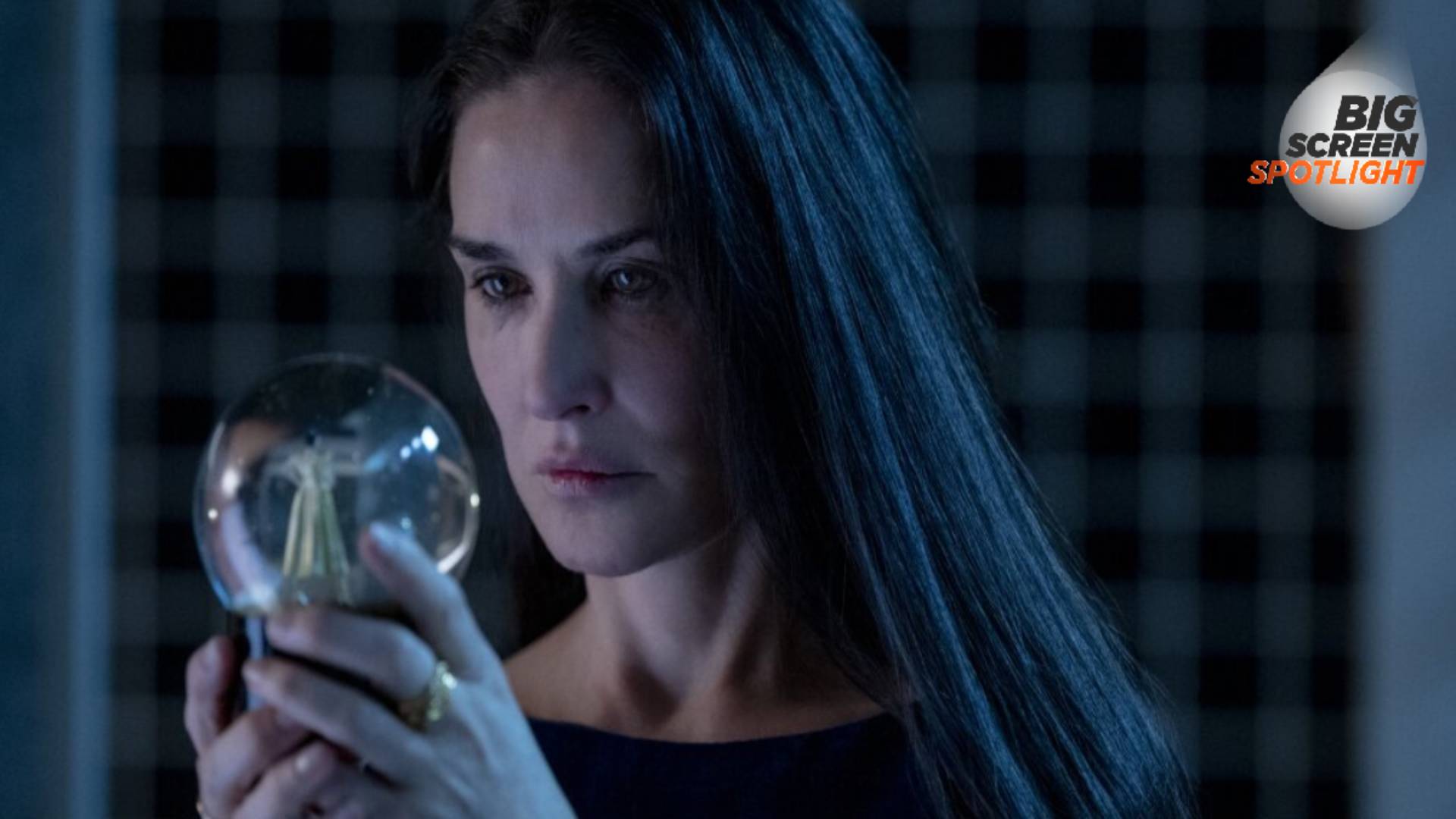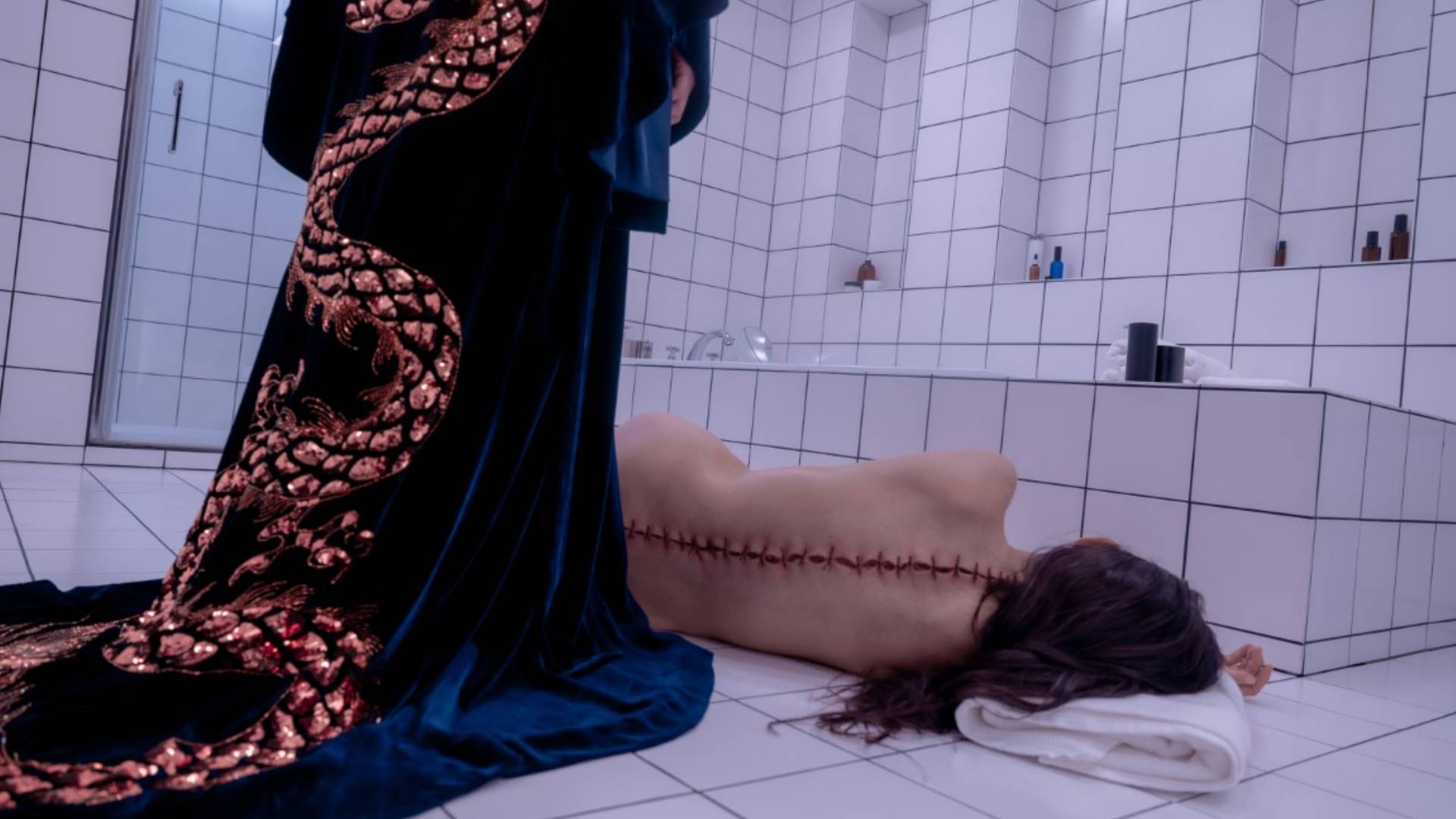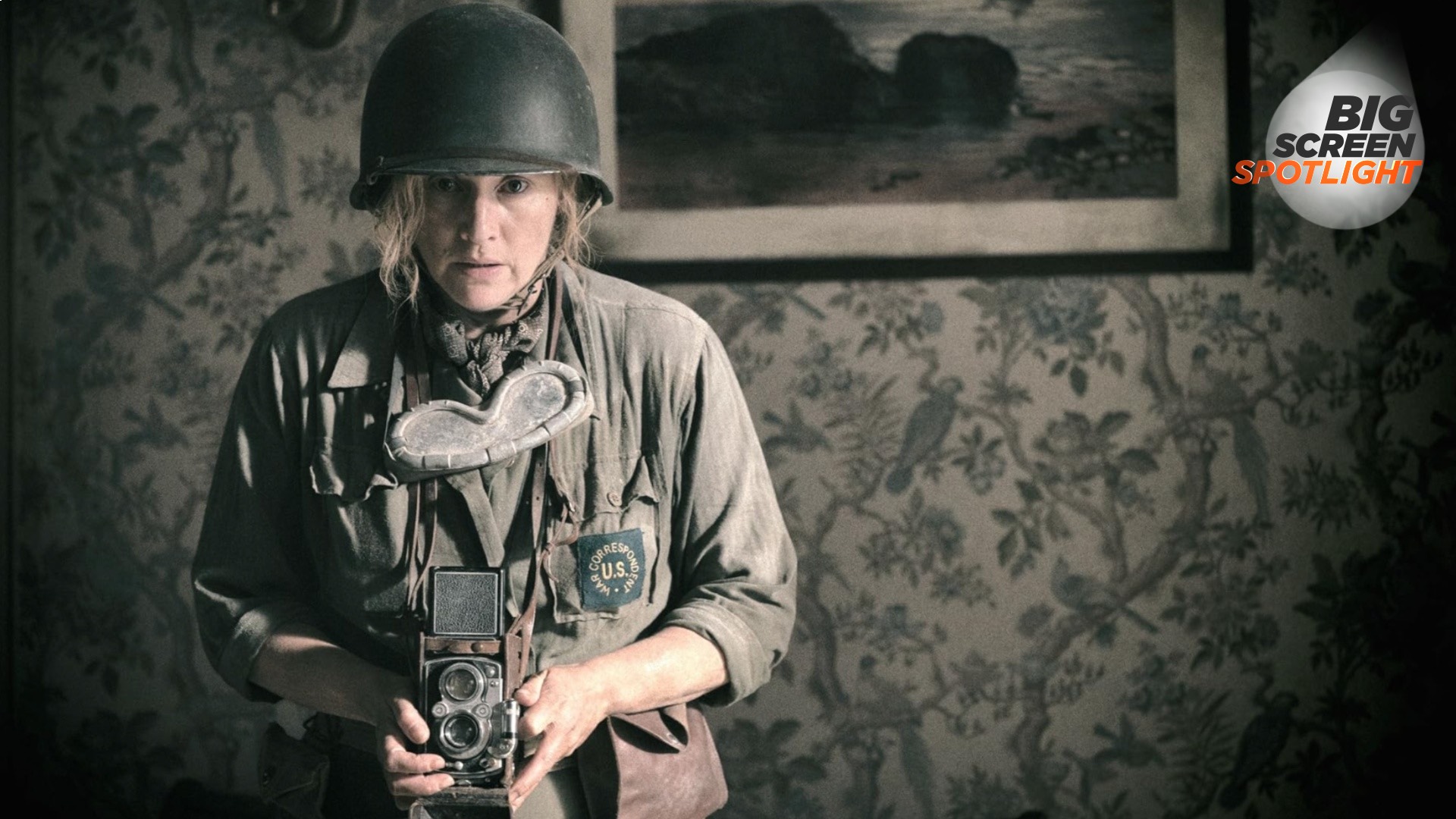
I rarely think about my own body when watching a body horror movie. The mere thought of my flesh twisting, stretching, or reforming the way it does in David Cronenberg’s The Fly or Brian Yuzna’s Society is enough to give me a small panic attack. Body horror is best enjoyed when I can disconnect, observe, and let myself be happily sickened from a third-party, viewer's perspective. The Substance, however, does not let you disconnect. Instead, Coralie Fargeat’s drippy, goopy gorefest invites you to see yourself on screen – and have a slightly intense but strangely enjoyable existential crisis for two hours and 20 minutes.
The quest for perfection

The Substance stars Demi Moore as Elisabeth Sparkle, a fading celebrity once lauded for her looks – which were the focus of a rather sexualized dance-fitness show for several decades. After being fired from the show on her 50th birthday, Elisabeth comes across a black-market, cell-replicating substance that temporarily creates a younger, better version of herself named Sue (played by Margaret Qualley). Without giving too much away… it doesn’t go well. We can infer this from the cryptic trailers and marketing that invite you to dial the number, ask about the Substance, and give it a try – it’ll change your life.
I’d argue that most horror trailers make the mistake of giving away some of the most significant scenes, or sometimes even the climax (looking at you, Speak No Evil). But the brief, arthouse-indie-style teasers for The Substance don’t even slightly prepare you for what you’re about to witness. They also didn’t prepare me for the emotional ride I would go on as a woman who suffers from a long history of diagnosed body dysmorphia – which is arguably the core of the film.
Shining a light on the under-the-radar theatrical releases that you need to know about, with a new article every Friday
It starts off as a semi-typical story of an aging woman in Hollywood who is desperate to feel young again, showcasing those days when you feel too ‘ugly’ to leave the house, or the mornings you spend looking at your body in the mirror. Dennis Quaid plays a studio executive obsessed with the idea of hiring a young, hot female replacement for Elisabeth, and he represents the male gaze – finding himself unable to hide his disgust at Elisabeth’s aging face and body. This seemingly normal premise for a film quickly begins to change, however, the longer Elisabeth takes the substance. And by change, I mean snowball into one of the most visceral experiences I have ever had in a movie theater.
Body horror but make it meta

The purposeful duality of the casting isn’t lost on me: Demi Moore is a 61-year-old woman who, with a career that spans over 40 years, was once the highest-paid actress in the world. Margaret Qualley is a 29-year-old rising star who is starting to nab lead roles in Hollywood. Moore told The Guardian that she found the movie liberating, that she related not just to the obvious similarities between her and Elisabeth Sparkle but to “how violent we can be toward ourselves.” This is a lot of what makes it work: casting an unknown or more recently famous actor as a fading veteran of Hollywood wouldn’t hit the same. It wouldn’t have the same healing factor. When Elisabeth is looking at her body in the mirror, pinching at her stomach, the viewer can’t help but wonder if Moore feels the same way in real life – and this almost meta aspect of the film is just another factor that makes it one of the most unique cinematic experiences I’ve ever had.

This is for two reasons. One: the visual horror becomes so sickening that I, a fan of movies where heads get blown off and people get eaten, had to look away from the screen several times. At one point I put my hand over my eyes and watched between the slits of my fingers. Two: there’s a point during the aforementioned visual horror where it dawns on the viewer that Fargeat is commenting on the sheer absurdity of body dysmorphia itself. When you take away things like makeup, cosmetic surgery, and societal pressures that encourage us to spend all of our money on those things… we’re just sacks of meat. We are beautiful and gorgeous and stunning, but, at the end of the day, our bodies are just these fleshy little vessels that carry our souls around in this particular lifetime. Fargeat invites us to think of the body as a concept, as an idea rather than a thing – and mild existential crisis aside, I found it rather healing. I recommend rushing to the theater to see it, but I would probably skip the popcorn.
The Substance is out now in theaters. For more on what to watch, check out the rest of our Big Screen Spotlight series.








